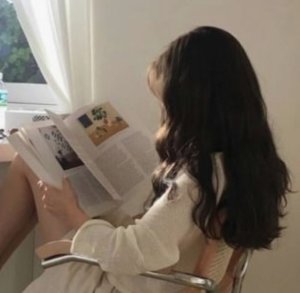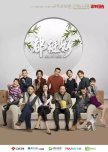Disclaimer: 7.5 is a very good rating for me, don't let that dissuade you from watching this. Grounded Chinese realistic dramas are very unknown overseas because it's rare they get licensed and subbed, and All Is Well is one of the few that people even hear about because of Daylight Entertainment. MDL ratings for Chinese dramas are incredibly inflated and I don't want to hurt this drama's chances by lowering its rating, but I also have a lot of issues with it. Just keep in mind that my 7.5 is probably like a 9 on a typical MDL scale.
Firstly let me say that the acting is on point, no surprise there at all. These are all talented cast who've worked for many years. Guo Jinfei as Su Mingcheng was the overall highlight for me as I felt his character was the most difficult to grasp and had some intense dialogue, many of which were improvised. Of all the cast, I hope he gets some recognition for his performance. They also added a touch of Suzhou culture to the drama by inserting Suzhou "pingtan" (a traditional form of performing arts sung in the Suzhou dialect) that usually matched the scenes they were edited to.
It's hard for me to review this for several reasons. I think most people watching this would enjoy it as a good, emotional family drama. But let's set aside emotional manipulation and convenient plot devices because I feel that's lazy writing. What ruined this show for me was the ending that broke away from the novel's original ending in order not to aggravate TV audience expectations. The amount of toxicity and abuse in the Su family could not have realistically been resolved the way it was in the show. As a result, characters went through typical whitewashing, which I think completely missed the point of the original story and does a huge disservice to Su Mingyu and all people who have grown up in similar environments.
The message this drama passes along is that family is everything and no matter what, you should always forgive family because forgiveness sets you free. But I disagree, I find this message extremely invalidating and oftentimes unrealistic. Letting go of hatred is not equivalent to forgiving those who have abused you emotionally or physically. No amount of whitewashing, no reasons, serve as justifiable validation for people to treat you like trash, ever. Period. You can learn to let go of hatred so that you can free your present self from the grasp that shitty events in the past have on you without forgiving people who do not deserve your forgiveness, even if those people are family.
And that's why I'm conflicted about my thoughts about this. I don't feel like I have the right to decide how other people, such as Mingyu, personally handle these situations. We all choose our own way of moving on and letting go, and at best we can only be supportive instead of judgmental of what makes other people feel empowered and happy. I personally feel that the direction this drama went is rather fantastical and is something more often wished for than actually happens in real life. For a realistic production such as this, I expect less wish gratification and more stark realism. I can only say that in the original novel, Mingyu did not make certain choices she made in the drama, and I think the drama should have at the very least kept the choices she made in the book. Firstly because they make more sense character-wise, even if they are less wholesome; secondly because while I can't make decisions for Mingyu, the original author can and did, but her choices weren't respected. Most Chinese family dramas choose this type of ending, All Is Well did not bring anything new to the table even though it had the opportunity to.
There is also one error in the writing that doesn't actually affect the story, I only want to point it out because this is supposed to be a realistic drama and I really feel like the writer should have done some work here: The entire premise of this story is unrealistic in itself due to the fact that China established the one-child policy in 1980. The Su kids are obviously born after 1980, so yeah. Especially in a major area like Suzhou, given the Su parents' occupations (hospital nurse and school librarian) it's impossible that the Su family could have had 3 children.
Firstly let me say that the acting is on point, no surprise there at all. These are all talented cast who've worked for many years. Guo Jinfei as Su Mingcheng was the overall highlight for me as I felt his character was the most difficult to grasp and had some intense dialogue, many of which were improvised. Of all the cast, I hope he gets some recognition for his performance. They also added a touch of Suzhou culture to the drama by inserting Suzhou "pingtan" (a traditional form of performing arts sung in the Suzhou dialect) that usually matched the scenes they were edited to.
It's hard for me to review this for several reasons. I think most people watching this would enjoy it as a good, emotional family drama. But let's set aside emotional manipulation and convenient plot devices because I feel that's lazy writing. What ruined this show for me was the ending that broke away from the novel's original ending in order not to aggravate TV audience expectations. The amount of toxicity and abuse in the Su family could not have realistically been resolved the way it was in the show. As a result, characters went through typical whitewashing, which I think completely missed the point of the original story and does a huge disservice to Su Mingyu and all people who have grown up in similar environments.
The message this drama passes along is that family is everything and no matter what, you should always forgive family because forgiveness sets you free. But I disagree, I find this message extremely invalidating and oftentimes unrealistic. Letting go of hatred is not equivalent to forgiving those who have abused you emotionally or physically. No amount of whitewashing, no reasons, serve as justifiable validation for people to treat you like trash, ever. Period. You can learn to let go of hatred so that you can free your present self from the grasp that shitty events in the past have on you without forgiving people who do not deserve your forgiveness, even if those people are family.
And that's why I'm conflicted about my thoughts about this. I don't feel like I have the right to decide how other people, such as Mingyu, personally handle these situations. We all choose our own way of moving on and letting go, and at best we can only be supportive instead of judgmental of what makes other people feel empowered and happy. I personally feel that the direction this drama went is rather fantastical and is something more often wished for than actually happens in real life. For a realistic production such as this, I expect less wish gratification and more stark realism. I can only say that in the original novel, Mingyu did not make certain choices she made in the drama, and I think the drama should have at the very least kept the choices she made in the book. Firstly because they make more sense character-wise, even if they are less wholesome; secondly because while I can't make decisions for Mingyu, the original author can and did, but her choices weren't respected. Most Chinese family dramas choose this type of ending, All Is Well did not bring anything new to the table even though it had the opportunity to.
There is also one error in the writing that doesn't actually affect the story, I only want to point it out because this is supposed to be a realistic drama and I really feel like the writer should have done some work here: The entire premise of this story is unrealistic in itself due to the fact that China established the one-child policy in 1980. The Su kids are obviously born after 1980, so yeah. Especially in a major area like Suzhou, given the Su parents' occupations (hospital nurse and school librarian) it's impossible that the Su family could have had 3 children.
Was this review helpful to you?





















